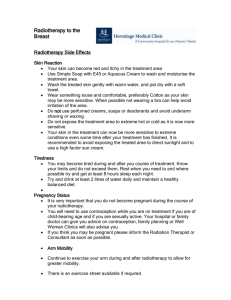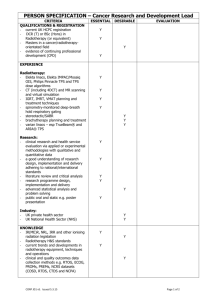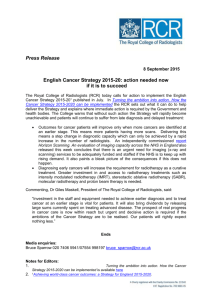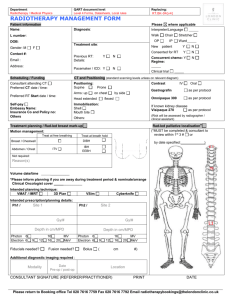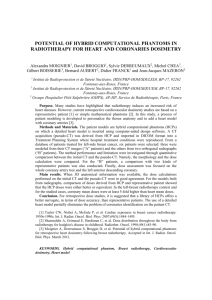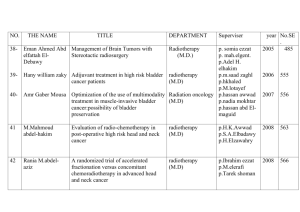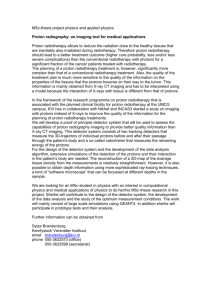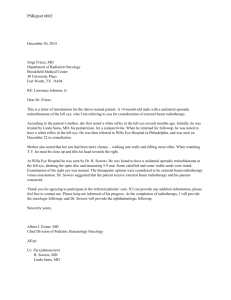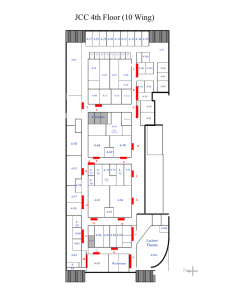The original letter can be read here
advertisement
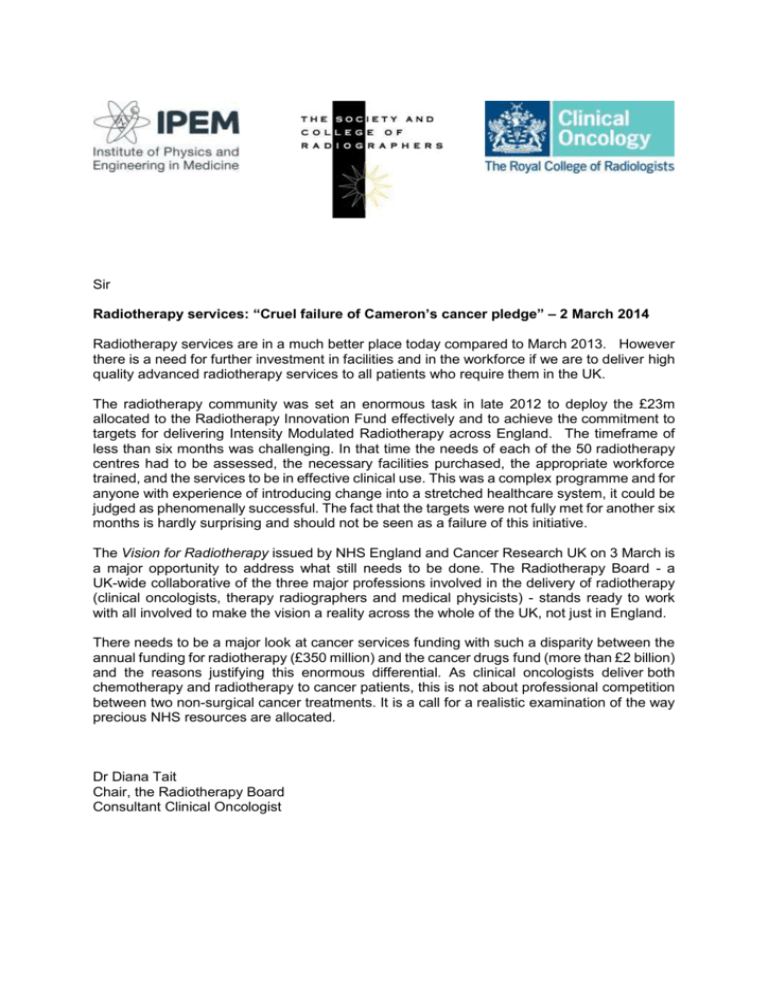
Sir Radiotherapy services: “Cruel failure of Cameron’s cancer pledge” – 2 March 2014 Radiotherapy services are in a much better place today compared to March 2013. However there is a need for further investment in facilities and in the workforce if we are to deliver high quality advanced radiotherapy services to all patients who require them in the UK. The radiotherapy community was set an enormous task in late 2012 to deploy the £23m allocated to the Radiotherapy Innovation Fund effectively and to achieve the commitment to targets for delivering Intensity Modulated Radiotherapy across England. The timeframe of less than six months was challenging. In that time the needs of each of the 50 radiotherapy centres had to be assessed, the necessary facilities purchased, the appropriate workforce trained, and the services to be in effective clinical use. This was a complex programme and for anyone with experience of introducing change into a stretched healthcare system, it could be judged as phenomenally successful. The fact that the targets were not fully met for another six months is hardly surprising and should not be seen as a failure of this initiative. The Vision for Radiotherapy issued by NHS England and Cancer Research UK on 3 March is a major opportunity to address what still needs to be done. The Radiotherapy Board - a UK-wide collaborative of the three major professions involved in the delivery of radiotherapy (clinical oncologists, therapy radiographers and medical physicists) - stands ready to work with all involved to make the vision a reality across the whole of the UK, not just in England. There needs to be a major look at cancer services funding with such a disparity between the annual funding for radiotherapy (£350 million) and the cancer drugs fund (more than £2 billion) and the reasons justifying this enormous differential. As clinical oncologists deliver both chemotherapy and radiotherapy to cancer patients, this is not about professional competition between two non-surgical cancer treatments. It is a call for a realistic examination of the way precious NHS resources are allocated. Dr Diana Tait Chair, the Radiotherapy Board Consultant Clinical Oncologist
